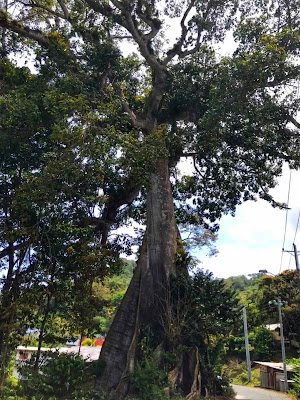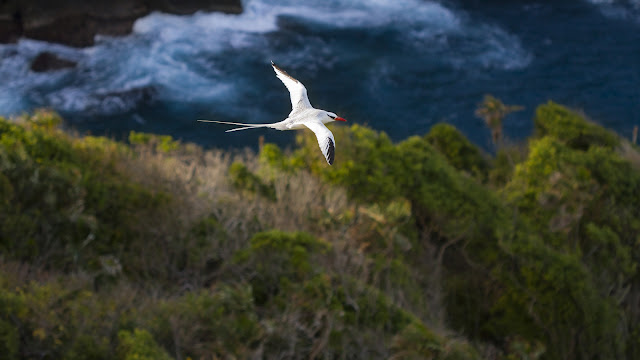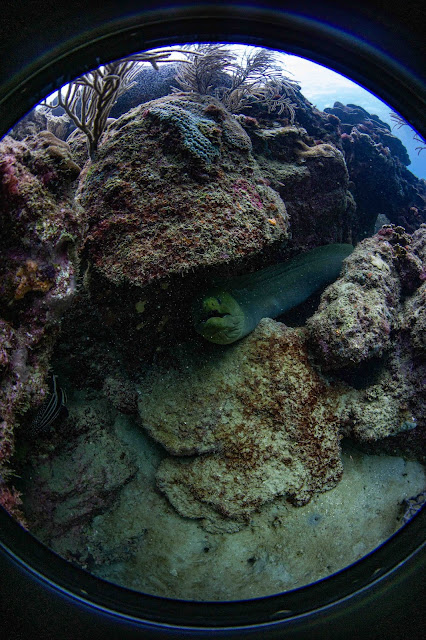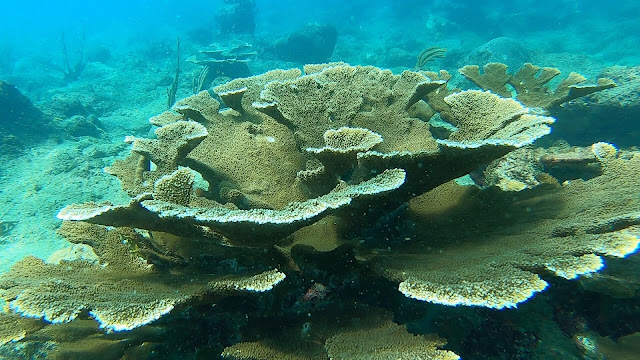Re-opening Tobago's tourism
With their biggest market right on the
doorstep, Tobago properties are encouraged to re-open to Trinidad as if we are
the world. Tobago might yet teach Trinidad some things about business that brings communities together and works to keep traditional values intact. All photos courtesy Anjani Ganase
To revitalise
the tourism sector for Tobago, in the post-Covid 19 world is not rocket science.
The people of our two islands already possess the intelligence, skill and
adaptability to develop and maintain such a service industry. Awareness of
country assets is something that can be learned; as well as an understanding of
what draws visitors to our country. In Trinidad, we know about Carnival and
Pan. In Tobago, we have beaches and pristine landscapes.
Certainly one of
the most compelling attractions in both islands, is the ease
and grace with which our multi-culturalism presents itself. It’s in the
festivals – not only Carnival and Divali and Baptist Liberation, in the
celebrations of small churches all over Tobago – in our diverse and inventive
cuisine, and traditions and customs drawn from many continents. Indeed, and not
to be taken for granted, our first engaging quality is the commingling of races
in the faces of our people. The second must be the variety and accessibility of
nature across the two islands. People, Culture, Nature are our greatest assets.
 |
| Sunset view from Mt Irvine. Photo by Anjani Ganase |
It is my opinion
that any tourism campaign for Tobago could have been created right here in
Trinidad and Tobago. Now, push comes to shove, let’s begin to engage ourselves,
our own people in the appreciation and promotion of Trinidad and Tobago. Let us
present ourselves to ourselves: Tobago to Trinidad, and Trinidad to Tobago. In
so doing, we will create the product that we can be proud of, and proud to
share with anyone from the rest of the world. Here are some of the selling points for our island that we should be willing to share, supporting each other.
The nearness of Tobago: Trinidad and Tobago are inextricably
bound. Why should we even be challenged to be separate or attempt to duplicate
efforts unless it is for redundancy and resilience. One island offsets the
other: you don’t get to appreciate the natural and idyllic splendours of Tobago
without having imbibed the mélange that is Trinidad. This is one of the biggest
and main reasons that Trinis love Tobago, its nature and it’s nearby. Bring
your car on the ferry or take the Caribbean Airlines airbridge; it’s easy to
rent a car in Tobago.
Stay in a village: Because Tobago has held on to its
village and communal lifestyle, you can stay in a village anywhere around the
island. Along the Windward road, there is the powerful pounding Atlantic. On
the west coast, you overlook the Caribbean Sea. These are two distinct and
different bodies of water that bathe Tobago. The villages on the east coast,
the Windward side include Lambeau; Lowlands; Bacolet; Pembroke; Belle Garden; Roxborough;
Delaford; Kings Bay and Speyside.
On the west or
Caribbean side, find Buccoo; Mt Irvine; Plymouth; Moriah; Culloden; Castara; Parlatuvier;
Charlotteville. Explore the history and settlement of the island at the Museum
at Fort King George.
The villages
allow you to slow down and melt into the lifestyle, to talk with people, to
discover their specialties whether it is fresh baked bread, curried crab, fried
fish; goat and crab racing; fishing, diving, or something else.
 |
| Little Tobago is a sanctuary for sea birds including red-billed tropic birds, magnificent frigatebirds, gulls and pelicans |
Learn from the locals: Trust the tour guides and forest rangers
to tell you about the oldest forest reserve in the western hemisphere. A guided
tour with those entrusted to safeguard its boundaries, its trees and plants,
the animals and birds, is a valuable and entertaining education.
Stay close to the beach: Castara has created its unique village package
which welcomes visitors from Trinidad or Germany like old friends. If you
prefer the more formal and traditional accommodation and hospitality, the
hotels on the Caribbean coast, Grafton, Mt Irvine, will please you.
Charlotteville is another Tobago village with a distinctive way of life.
Explore the ocean: Most bays in Tobago have
coral reefs that you can snorkel. On a calm day the reefs in Mt Irvine and
Arnos Vale are easy for beginners as they’re close to shore.
If you want to be alone, you can have that too.
Tobago has given celebrities looking for getaway and seclusion, privacy and
comfort. There are a number of villas with breathtaking views around the island;
some are publicized only by word of mouth. There are villas in Mt Irvine,
rustic bungalows off the Main Ridge (Parlatuvier) and Charlotteville. Splurge,
mix and mingle. Villa Being or Villa Petrus may be more expensive than staying
in your own home, but the luxury of premium Tobago is easily affordable
compared with other Caribbean Islands.
 |
| Glass-bottomed boat tours of the Speyside coral reefs can be boarded at Batteaux Bay |
Nightlife is spectacular: Under a million stars, you can stir the
water in a lagoon and see the bioluminescence bloom around your swirling
arms. If you want more gregarious
activity, visit the neighbourhood bars. Visit Castara for their Bonfire Nights.
Trinis
have a simple formula of beach, lime and bar hopping on Tobago’s version of the
Avenue (the Pigeon Point junction with
Milford Road). Most Trinis may not leave the southside of Tobago or go past
Scarborough, but we encourage you to step out to discover a different Tobago.
Family trips beyond the beach: Waterfalls, like the
one at Argyll, are easy treks for kids.
2020
might be an unconventional school year, but there are educational opportunities
everywhere in Tobago. Keep a bird log for when you trek or drive through the
Main Ridge or through the boardwalk and the wetlands of Petit Trou and Bon
Accord Lagoon. There are 230 bird
species in Tobago. Take the boat ride to Little Tobago to get a close-up view
of the nesting tropic birds – the awesome oceanic birds. Snorkel and count fish
in the Buccoo Reef.
Iconic heritage sites: The silk cotton tree in Moriah; the
legend of Gang Gang Sara who lived in Les Coteaux; the mystery tombstone of
Plymouth, the Courland Monument, Robinson Crusoe beach and the many forts
around the island are easily accessible. Visit the Museum and restored
fortifications at Fort King George, overlooking Scarborough.
 |
| The silk cotton tree at Moriah |
What’s in it for Tobago: With a revitalized tourism sector,
Tobago can hold on to its authentic small village lifestyle which is one of the
greatest attractions in a globalized world. “Small is beautiful” and sustainable,
and resilient. Let us cherish and support Tobago’s regard for its natural
reserves: the oldest protected rainforest; and the coral reefs around the
island. Let Tobago be known as the guardian of the wonders of the deep ocean
still to be explored.
The
well-developed traditional tourism sector means that Tobago already has
exhaustive information at on-line sites. All accommodation can be researched
and booked on-line. Visit the current promotional campaign site: www.visittobago.gov.tt/go-beyond for a comprehensive list of things to do
in Tobago. Go to mytobago.com for listings of accommodation and restaurants;
it’s regularly updated.
Hospitality is the sector that encourages and rewards
entrepreneurs who love their country. It is possibly the most available and
accessible place to restart an economy in which all have the opportunity to
participate.




